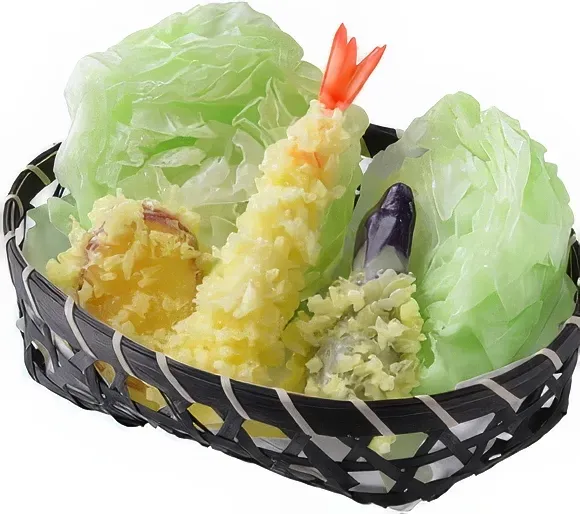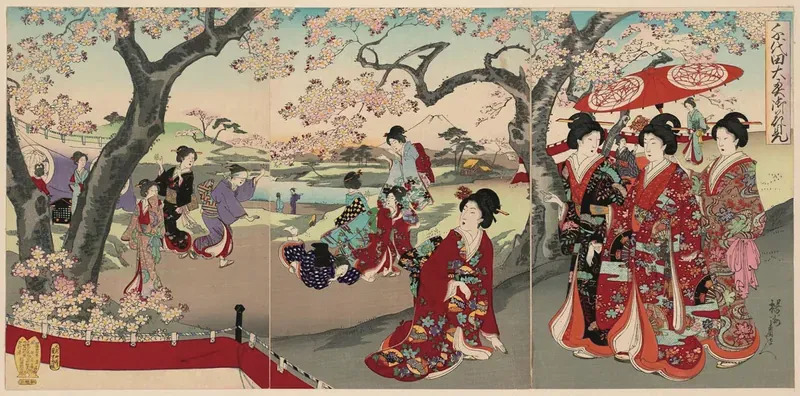With every season comes a slew of new Japanese vocabulary to learn. Doug Breath runs down the list of summer Japanese he has been grappling with lately.

Ase Daku 汗だく
Literally “Dripping with sweat.” Imagine an oji-san draped over a bowl of gyudon slurping it back as he wipes the sweat off his forehead and uses it to swirl his barcode back in place. That’s ase daku.
Atsui Desu Ne? 暑いですね?
Straight out of the “No Shit Sherlock” phrasebook, we have this old locution meant to alert you to the fact that – just in case you hadn’t noticed – it is f...ing HOT. Also available in the winter variety “Samui desu ne!”

Natsubate 夏バテ
Natsubate, essentially “summer heat fatigue”, is a common complaint during the hot months. It is derived from natsu (summer) and bateru (exhausted). The long list of causes for the condition ranges from dehydration to depletion of electrolytes and minerals – probably from sweating - like Marjorie Taylor Greene at a spelling bee – and from constantly moving between air-conditioned rooms and the boiling weather outside.

Inkintamushi 陰金田虫
The precise etymology of this fun summer word has exceeded our Google search capacity. However, most likely it is derived from inkin (private gold) and mushi (bug). Just do your retinas a favor and don’t go doing an image search on this one. Suffice it to say sweaty gonads can lead to jock itch. So if you’ve been suffering in silence now you know what to say at the drug store.

Mizumushi 水虫
The foot version of inkintamushi. Here the word is derived from mizu (water) and mushi (bug). The fun begins between your toes. The best part is that you can share with almost anyone who walks where your smelly trotters have been. Commonly gifted at swimming pool locker rooms and public bathing areas.

Mukade ムカデ
The infamous mukade is a serial killer-like centipede. Here is a basic rundown of the fun you can have with them: “Symptoms of a bite include pain, erythema, edema, lymphangitis, lymphadenitis, weakness, and paresthesias. Skin necrosis may occur at the site of envenomation during the weeks following the sting.”
You know they mean business when, unlike any other bug, they show no fear, and walk towards you.
Ume-shu 梅酒
Ume-shu is a summer beverage made from green plums fermented in alcohol. The Japanese plum or ume is known for its cooling properties and shu (drinkable alcohol ) is known for getting you drunk. The combination of getting drunk and cooling down seems unbeatable. Just don’t over-indulge as ume-shu is sometimes made with the Japanese equivalent of Everclear. The more potent home brews can have an adverse effect on your ability to speak coherently or engage in normal bodily functions such as opening your eyes and standing.
Unagi うなぎ
Everyone will tell you that unagi (eel) is a summer dish you simply have to eat because it is rich in protein, and vitamins A and E. It is said that unagi gives people stamina on hot days. Don’t be put off by the fact that it is a carnivore that looks like a snake.
Reimen 冷麺
Reimen is derived from the words rei (cold) and men (noodles) and comes in a wide variety of dishes. You can have everything from cold ramen, cold udon, cold soba, and even cold pasta. The current “Cold Boom” has led to some freaky concoctions aimed at grabbing publicity. Cold konyaku noodles with tuna sauce served in a bowl made from watermelon? Err... no thanks.
Zansho 残暑
Just when things start to cool down in Japan the weather will unexpectedly turn hotter than a bicycle “borrowed” by a gaijin. This late summer switcheroo is known in the local lingo as zansho derived from the kanji zan (leftover) and sho (heat).

Semiセミ
In Japan, the semi (cicada) emerges from the ground to sing every summer. They only live for a short period of time – long enough to attract a mate with their song and complete the process of fertilization – leaving behind an empty shell. Think of them as the Charisma Men of the insect world.
Enjoy the Nagoya Summer!!!!

Doug Breté
Stirred, not shaken - by anyone or anything that drinks vodka martinis. Author of the forthcoming "Out of Breath - Kim Jung Un and the Baby of Svendalore."









Leave a Comment